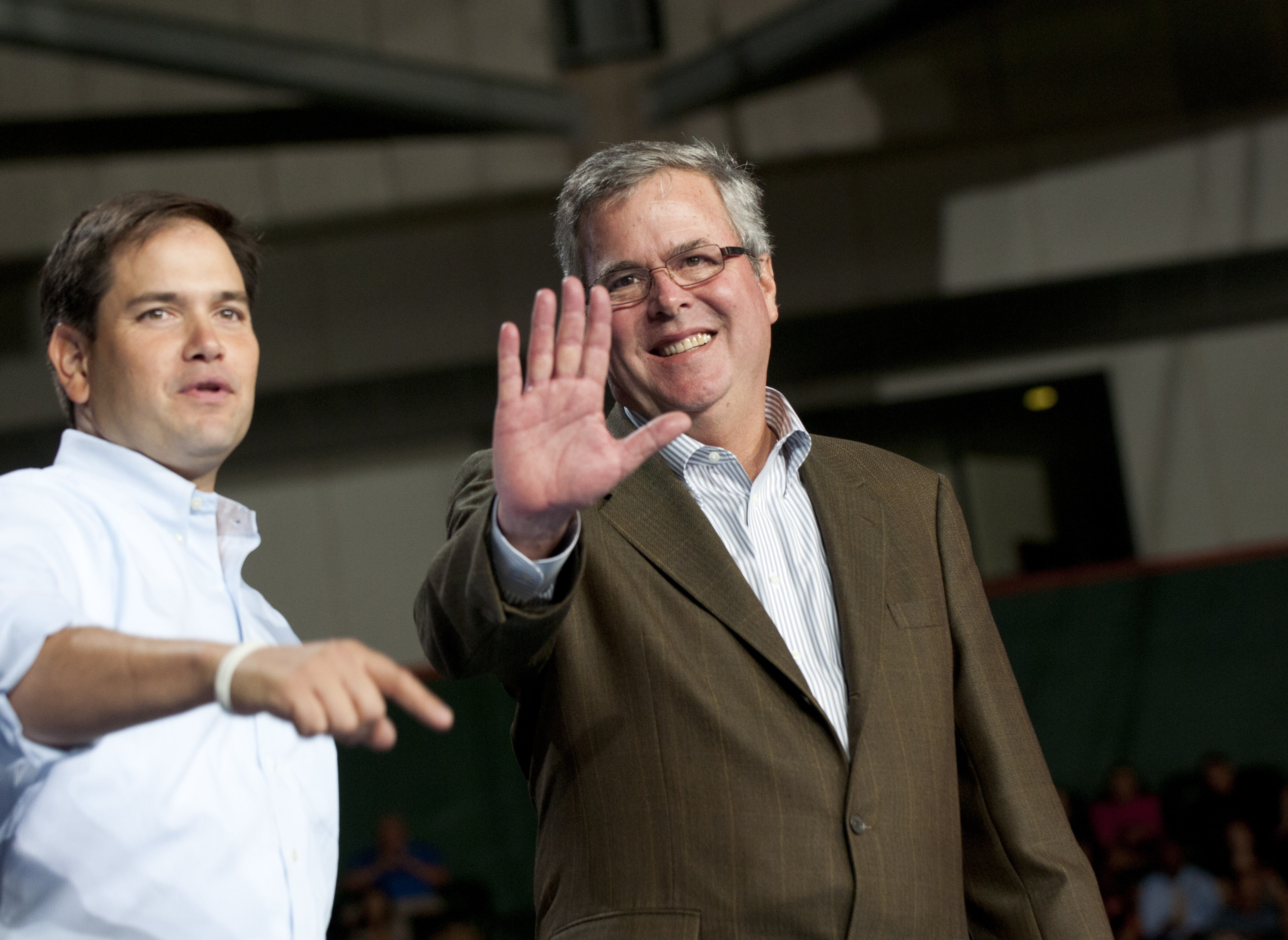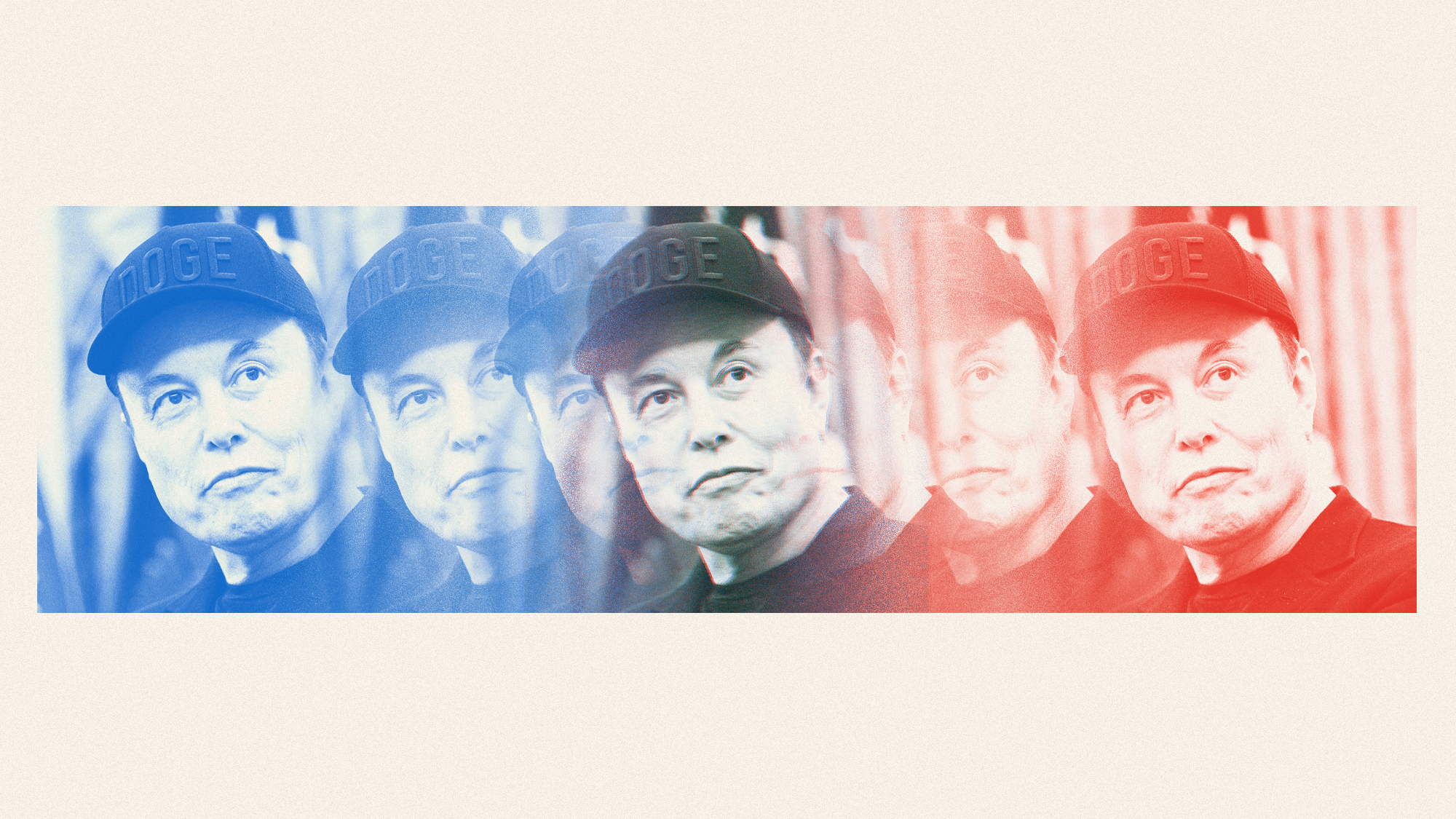Blunder-mania is coming for the GOP. Can the 2016 candidates avoid the smackdown?
Republican presidential candidates have a major media problem on their hands — and it has nothing to do with partisan bias


Republican presidential candidates have a major media problem on their hands, and it has nothing to do with partisan bias.
Between the day they announce their candidacy and the night their debates begin, they will draw little to no media attention unless they blunder.
Blunders — be they bursts of anger at interviewers or interpretative gaffes about the Iraq War — will be the central organizing principle of media coverage. There will of course be plenty of excellent journalism committed along the way, but it will be read by people whose minds are already made up, and it shall generally be forgotten. (There's usually one exemption per cycle: In 2007 and 2008, Ron Brownstein divided the Obama and Clinton coalitions by employing a great metaphor: Hillary was supported by beer-track voters; Obama was supported by wine-track voters.)
Subscribe to The Week
Escape your echo chamber. Get the facts behind the news, plus analysis from multiple perspectives.

Sign up for The Week's Free Newsletters
From our morning news briefing to a weekly Good News Newsletter, get the best of The Week delivered directly to your inbox.
From our morning news briefing to a weekly Good News Newsletter, get the best of The Week delivered directly to your inbox.
For Republican candidates with national images — Jeb Bush, Chris Christie, perhaps Bobby Jindal — the downside potential for their favorability ratings among Republican primary voters is significantly greater than the chance that they'll finish the fallow season with a favorable glow at all. For others, like Scott Walker, media attention to blunders might seem helpful, in the way that Republicans like to capitalize off of their own base's resentment with the press. But Fox News, too, is not immune to this observation. Jeb Bush's Iraq War circumlocution was born there, and in his effort to clean it up, he took to conservative talk radio.
What to do? Hillary Clinton's approach — to ignore the media and let surrogates deal with the media's blunder-based coverage model — won't work for the GOP. For one thing, Clinton is a known commodity, as basic to politics as steel is to cars. For another, the major "thing" — call it a knock against her — that people know about Clinton is that she's a Clinton. Fortunately, her Clinton-ness has been factored into how voters think of her, and even more fortunately for her, it is marginal to how well voters might assess her as a president. Bush, on the other hand, has to deal with his Bush-iness, which the blunder-based coverage model will never get enough of. This is probably the most obvious thing I've ever written, but neither Republicans nor Democrats feel good about George W. Bush's policies. (We like him as a person, and as a painter, perhaps, but as a president…)
The candidates could try not to blunder, but that's not really possible. Just what constitutes blundering differs from day to day. If Marco Rubio gives a speech about immigration, departures from orthodoxy are going to be labeled as blunders, requiring newscyclettes upon newscyclettes to explain. Pundits are always asked if candidates made mistakes by doing whatever they just did, which presupposes that they always make mistakes.
It's quite annoying to be a presidential candidate. I'm glad I'm not one of them.
Sign up for Today's Best Articles in your inbox
A free daily email with the biggest news stories of the day – and the best features from TheWeek.com
Marc Ambinder is TheWeek.com's editor-at-large. He is the author, with D.B. Grady, of The Command and Deep State: Inside the Government Secrecy Industry. Marc is also a contributing editor for The Atlantic and GQ. Formerly, he served as White House correspondent for National Journal, chief political consultant for CBS News, and politics editor at The Atlantic. Marc is a 2001 graduate of Harvard. He is married to Michael Park, a corporate strategy consultant, and lives in Los Angeles.
-
 Average retirement savings by age: how do you stack up?
Average retirement savings by age: how do you stack up?The Explainer Determine whether you're being appropriately frugal or going overboard
-
 Elon Musk's Trump tiff could be an opportunity for Democrats
Elon Musk's Trump tiff could be an opportunity for DemocratsTALKING POINTS As two of the world's most powerful people put the final nails in the coffin of their former friendship, Democrats are split over how to best capitalize on the breakup
-
 Summertime and the eating is good at these 7 restaurants across the country
Summertime and the eating is good at these 7 restaurants across the countryThe Week Recommends Patios and big flavors are in season
-
 The JFK files: the truth at last?
The JFK files: the truth at last?In The Spotlight More than 64,000 previously classified documents relating the 1963 assassination of John F. Kennedy have been released by the Trump administration
-
 'Seriously, not literally': how should the world take Donald Trump?
'Seriously, not literally': how should the world take Donald Trump?Today's big question White House rhetoric and reality look likely to become increasingly blurred
-
 Will Trump's 'madman' strategy pay off?
Will Trump's 'madman' strategy pay off?Today's Big Question Incoming US president likes to seem unpredictable but, this time round, world leaders could be wise to his playbook
-
 Democrats vs. Republicans: who are the billionaires backing?
Democrats vs. Republicans: who are the billionaires backing?The Explainer Younger tech titans join 'boys' club throwing money and support' behind President Trump, while older plutocrats quietly rebuke new administration
-
 US election: where things stand with one week to go
US election: where things stand with one week to goThe Explainer Harris' lead in the polls has been narrowing in Trump's favour, but her campaign remains 'cautiously optimistic'
-
 Is Trump okay?
Is Trump okay?Today's Big Question Former president's mental fitness and alleged cognitive decline firmly back in the spotlight after 'bizarre' town hall event
-
 The life and times of Kamala Harris
The life and times of Kamala HarrisThe Explainer The vice-president is narrowly leading the race to become the next US president. How did she get to where she is now?
-
 Will 'weirdly civil' VP debate move dial in US election?
Will 'weirdly civil' VP debate move dial in US election?Today's Big Question 'Diametrically opposed' candidates showed 'a lot of commonality' on some issues, but offered competing visions for America's future and democracy
